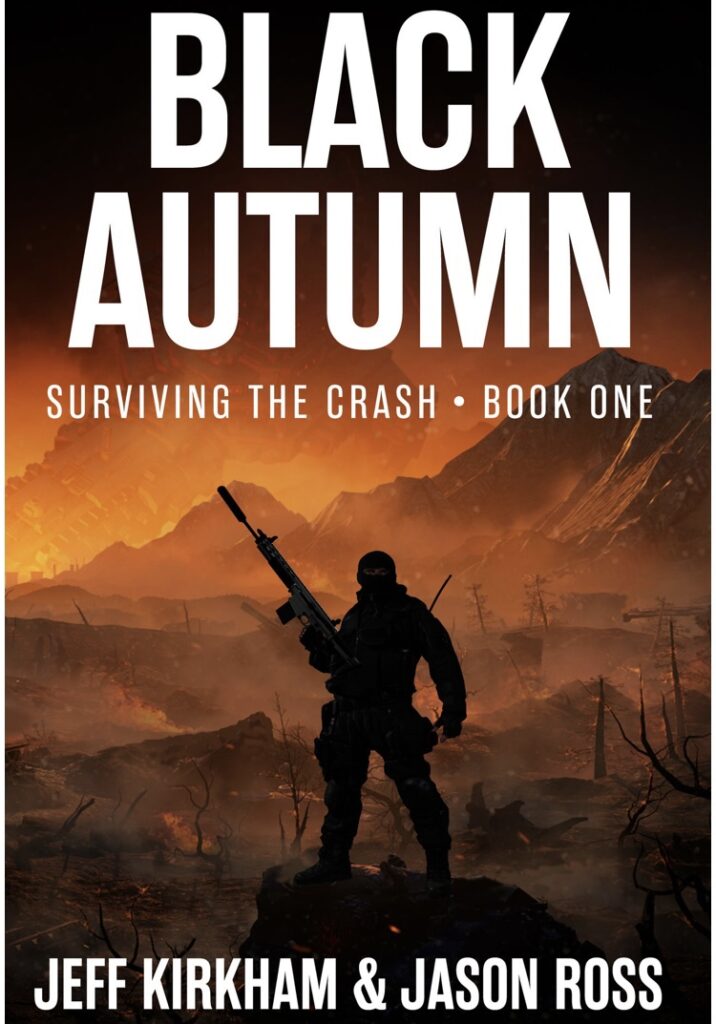It’s a pretty open secret that I’m a prepper. And by secret I mean I’ve been quoted in The New York Times and the BBC for being a new kind of “socially acceptable” preparedness aficionado. That basically means I’m not a conspiratorial reactionary but a nice white lady with politics that aligns with the powers that be. I say things like being prepared is the socially responsible thing to do for your community if you are privileged.
I got interested in preparedness because my family has been through a few natural disasters. My brother was in Louisiana during Katrina. My parents have survived a few fire season scares in Colorado. I was in Lower Manhattan during Hurricane Sandy. Watching the power grid go out for ten days in a city like New York changes you.
Now granted I’m still a libertarian and I’m from the mountain west so I’m not too far off the mark of prepper aesthetics. I picked up a lot of shall we say “heritage” skills as a kid with farming, animal husbandry and lots of camping. So it didn’t seem too intimidating to act like a Boy Scout and be prepared. But compared to what the rest of prepper and survivalist universe gets up to I am probably one of its most palatable emissaries.
I’ve been refining some of my longer term preps recently as I’ve been making the transition from being an urban prepper to scouting for a sustainable homestead. That means I’ve been looking for inspiration on what to prioritize. And holy shitballs has the apocalyptic aesthetic gotten even weirder. I read a book called Black Autumn that started pretty normal with lots of practical details about grain milling & food storage. But maybe the the cover should have clued me in.

The damn book ended with, and I am not making this up, a war between illegal Mexican immigrant “gangbangers” and the nice white folk in the Salt Lake City adjacent homestead. It ended up being “operator” porn. If you don’t know what that is read this piece on Black Rifle Coffee and the aesthetics of marketing to conservatives. Americans have a hard on for the military even if they never served.
I’m kind of mortified this is now in my Amazon history. Folks in the analytics department are going to start marketing even more reactionary shit to me. And deservedly because I bought another book called Day 299 (in case you hadn’t noticed I label my shit by the day too) in which some white guy goes from generic conservative “the government is bad” to full blown only alpha male traditionalist reactionary. I’m a third of the way in and I’ve so far gotten exactly zero useful preps out of it. At least the racist operator porn gave me a good tip on a wood fired stove for my fantasy homestead in Montana.
Apparently there is an entire genre of apocalypse fiction and all the books covers are guns, country and God. Which are all things I value too but like let’s tone it down people. Preparedness shouldn’t be the province of one political affiliation. Natural disasters are happening more frequently whether you believe in climate change or not (if you don’t think the climate is changing well you can’t borrow my grain or my rifles). Being a prepper doesn’t mean you are a MAGA, a good ol’ boy, a conspiracy nut or a Christo-fascist neoreactionary. Hell you probably aren’t a blue lives matter bootlicker if you are also a staunch 2A small government type. But the aesthetics sure make it look like it. This Mark Goodwin dude must be really weird in bed.
Everyone needs water, food and shelter. And we’ve been skeptical of FEMA since the X-Files movie so it’s not exactly news that self reliance is critical. So if you write apocalypse fiction please convince your publishers to chill on the imagery. I get that sex sells but the aesthetics are cringe and that’s keeping people from being prepared.

